Source: eqme.net

Julie Vola is a self-proclaimed photographer obsessed with the history of place. So when the opportunity arose for the Hanoi-based French photographer and Word Photo Editor to shadow Vietnamese fashion designer Vu Thao on a British Council sponsored trip to Sapa in Lao Cai Province in the north-west of Vietnam, she seized it.
“The project was an amazing opportunity to be able to witness over a few days a process that usually takes months with authentic methods.”
The process Julie refers to is the production, dyeing and weaving of hemp into fabric for clothing by women from Hmong communities. The story behind the use of hemp in the Hmong culture of northern Vietnam is more than 5,000 years long. Throughout their history, the Hmong have made the use of hemp and its weaving an indispensable part of their culture.
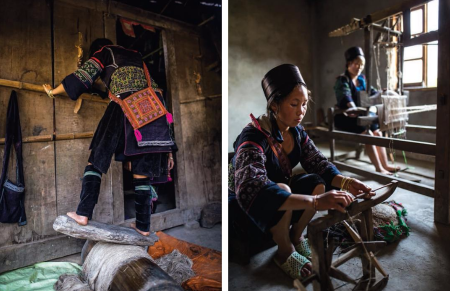
“I’ve always loved indigo and batik fabric from Sapa, so meeting these women and sharing a few days with them was great. Everything that happened was authentic. When you witness how long it takes and what hard labour it is for them to produce these beautiful fabrics, you come to understand why the items are expensive. You feel bad for every time you’ve chosen the cheaper option, and probably lesser quality.”
Somewhere along the line, Vietnam’s fashion industry has become known for two things—speed and low prices—not always a good thing and has become damaging to the reputation of Vietnamese made products, something that Julie’s trip to Sapa has brought into consciousness.
“I realised that we, myself included, aren’t willing to pay fair price anymore. Fast, cheap fashion has skewed the system completely.”
Bucking the trend of the ‘cheap is best’ mentality is a growing global interest in high-end, ethically sourced fashion that is helping to transform the negative perceptions of the Made in Vietnam label and in the process raising the profile of some of the country’s traditions and artisans.
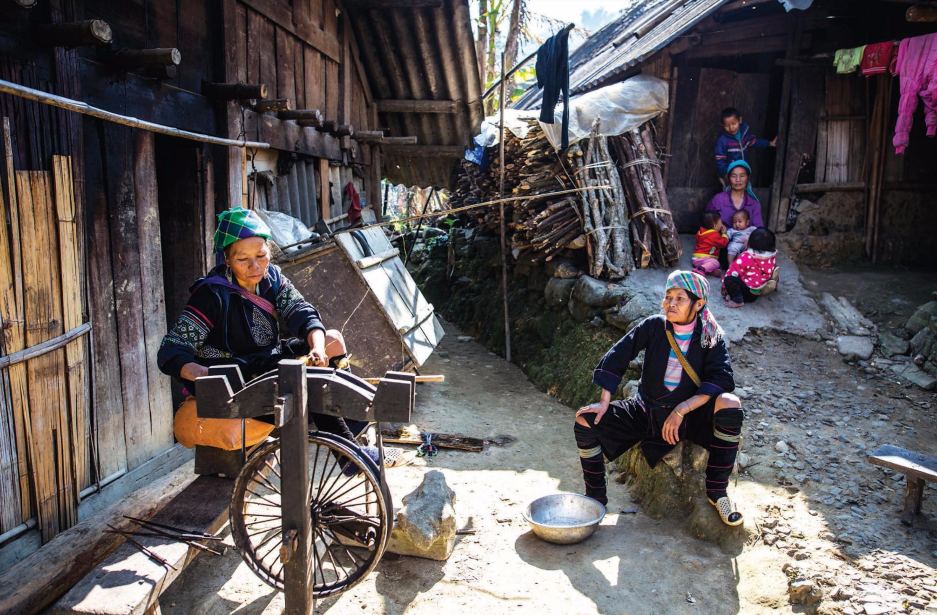
In a recent interview with Harpers Bazaar, Julie’s chaperone for the trip Vu Thao, a Hanoi-based fashion designer and founder of Kilomet 109, an eco-friendly fashion brand that works with women from the Nung, Thai, and Hmong ethnic communities and committed to preserving Vietnam’s rich fashion and textile’s heritage said, “People are looking for something unique, valuable…value is not superficial, it’s the culture behind it, the story behind it, the environmental issues behind it.”
Yet, the invaluable skills behind producing and weaving hemp into high-quality fabric for clothing remains at risk of not being passed down to future generations as Vietnam undergoes a cultural shift caused by development, threatening the traditional ways of life for millions of people.
“Their main challenge is being able to keep their traditional methods while being able to sustain their families. They need to find more people like Thao, but also transmit their knowledge so the next generation can take over,” says Julie.
Indeed, ways of passing down creative knowledge in communities like the Hmong haven’t kept pace with change in the rest of society, which is compounded by the fact that kids from ethnic villages leave for the big cities of Hanoi and Ho Chi Minh City to study and begin living a way of life far-removed from the generations before them.
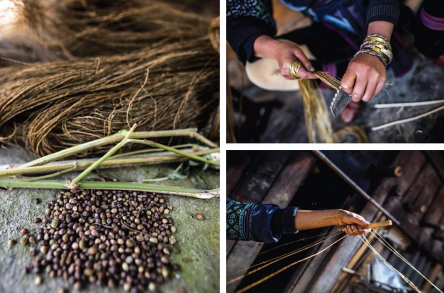
“Working with these women one-on-one, you feel responsible for finding a way to preserve their techniques,” said Thao in another recent interview with The Creators Project.
As for Julie, she plans to continue to help raise awareness of important issues in Vietnam and share the stories that arise out of them with a long-term goal to document the work of NGOs around the globe.
She adds,“But don’t we all want to do that in our field?”
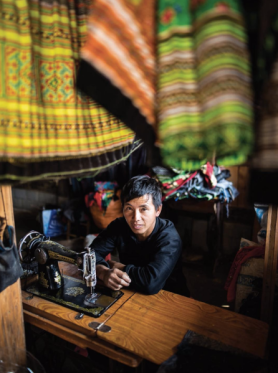
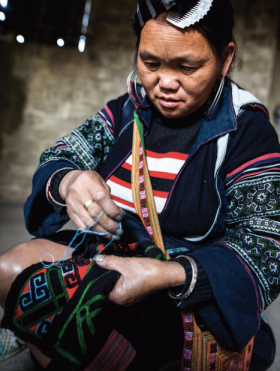
An edited version of this story was published in the February 2017 issue of Word Magazine
Photos by Julie Vola
No comments:
Post a Comment